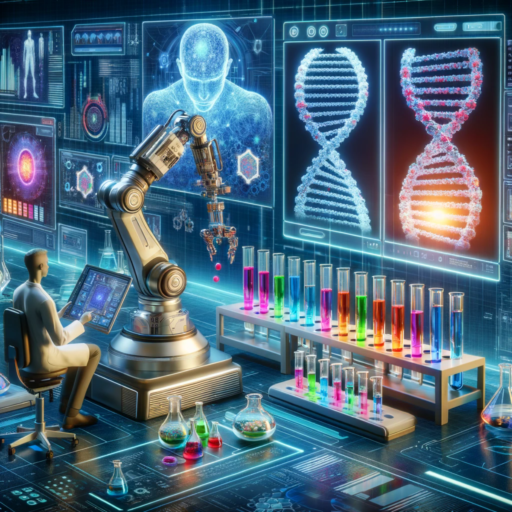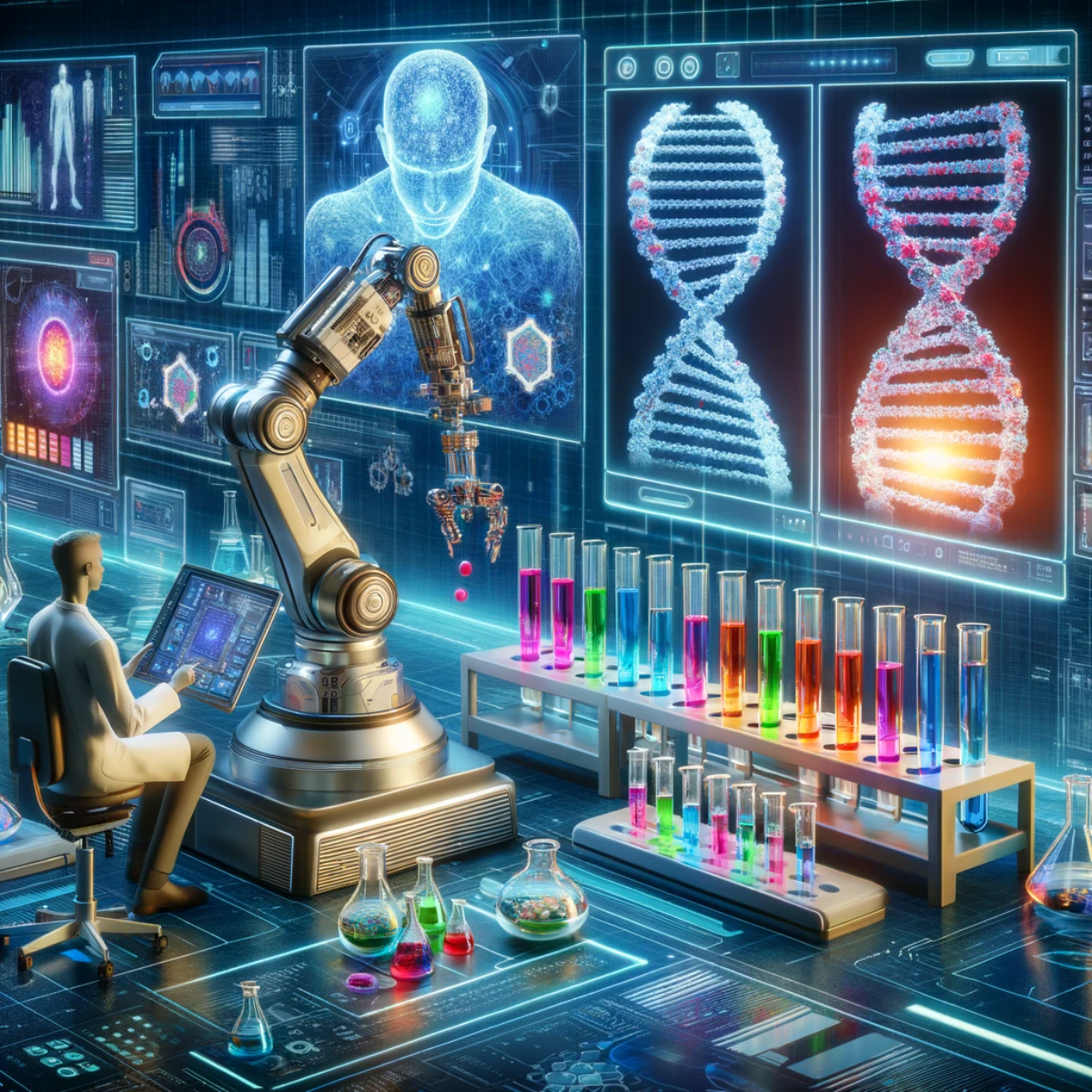Personalized medicine is an innovative approach to healthcare that takes into account individual variability in genes, environment, and lifestyle for each person. It aims to provide tailored medical treatments and interventions that are specific to each patient’s unique characteristics. This approach is made possible by advancements in technology, particularly in the field of machine learning.
Machine learning is a branch of artificial intelligence that focuses on the development of algorithms and models that can learn from and make predictions or decisions based on data. In the context of personalized medicine, machine learning algorithms can analyze large amounts of patient data, such as genetic information, medical records, and lifestyle factors, to identify patterns and make predictions about disease risk, treatment response, and prognosis.
Key Takeaways
- Personalized medicine and machine learning are transforming healthcare by tailoring treatments to individual patients.
- Benefits of personalized medicine include improved patient outcomes, reduced healthcare costs, and more efficient use of resources.
- Machine learning is a type of artificial intelligence that can analyze large amounts of data to identify patterns and make predictions.
- Machine learning can be used to develop personalized treatment plans, diagnose diseases, and monitor patients in real-time.
- Challenges and limitations of machine learning in personalized medicine include data privacy concerns, lack of standardization, and potential biases in algorithms.
The Benefits of Personalized Medicine in Healthcare
Personalized medicine has the potential to revolutionize healthcare by improving patient outcomes, reducing healthcare costs, and increasing patient satisfaction.
Improved patient outcomes: By tailoring treatments to individual patients, personalized medicine can improve patient outcomes. For example, in cancer treatment, personalized medicine allows for the identification of specific genetic mutations or biomarkers that can guide treatment decisions. This targeted approach can lead to more effective treatments with fewer side effects.
Reduced healthcare costs: Personalized medicine has the potential to reduce healthcare costs by avoiding unnecessary treatments and interventions. By identifying patients who are unlikely to benefit from certain treatments or medications, healthcare providers can avoid prescribing ineffective therapies. This not only saves money but also reduces the risk of adverse events associated with unnecessary treatments.
Increased patient satisfaction: Personalized medicine puts patients at the center of their own care by considering their unique characteristics and preferences. This individualized approach can lead to increased patient satisfaction as patients feel more involved in their treatment decisions and have a better understanding of their condition.
Understanding Machine Learning and its Applications in Medicine
Machine learning is a subset of artificial intelligence that focuses on developing algorithms that can learn from and make predictions or decisions based on data. These algorithms can analyze large amounts of complex data and identify patterns or relationships that may not be apparent to human observers.
In medicine, machine learning has a wide range of applications. For example, machine learning algorithms can be used to analyze medical images, such as X-rays or MRIs, to detect abnormalities or assist in diagnosis. They can also be used to predict disease risk based on genetic information or other patient data.
Examples of machine learning in medicine include the use of deep learning algorithms to analyze medical images for the early detection of diseases such as cancer. These algorithms can learn to recognize patterns in images that are indicative of disease, allowing for earlier intervention and improved outcomes.
The Role of Machine Learning in Personalized Treatment Plans
Machine learning plays a crucial role in the development of personalized treatment plans. By analyzing large amounts of patient data, machine learning algorithms can identify patterns and make predictions about treatment response and outcomes.
One example of personalized treatment plans is in the field of oncology. Machine learning algorithms can analyze genomic data from cancer patients to identify specific genetic mutations or biomarkers that are associated with treatment response. This information can then be used to guide treatment decisions and select the most effective therapies for each patient.
By tailoring treatment plans to individual patients, personalized medicine can improve treatment efficacy. Instead of using a one-size-fits-all approach, healthcare providers can use machine learning algorithms to identify the most effective treatments for each patient based on their unique characteristics.
Predictive Analytics and Machine Learning in Disease Diagnosis
Machine learning algorithms can also be used for disease diagnosis by analyzing patient data and making predictions about disease risk or presence.
One application of machine learning in disease diagnosis is in the early detection of diseases such as cancer. By analyzing patient data, including genetic information, medical history, and lifestyle factors, machine learning algorithms can identify patterns that are indicative of disease risk. This allows for earlier intervention and improved outcomes.
Machine learning algorithms can also improve the accuracy of disease diagnosis. By analyzing large amounts of patient data, these algorithms can identify patterns or relationships that may not be apparent to human observers. This can lead to more accurate and timely diagnoses, reducing the risk of misdiagnosis and ensuring that patients receive the appropriate treatment.
Machine Learning in Genomic Medicine and Precision Oncology


Genomic medicine is a field of medicine that focuses on using genomic information to guide medical decisions. Machine learning plays a crucial role in genomic medicine by analyzing large amounts of genomic data and identifying patterns or mutations that are associated with disease risk or treatment response.
In the field of precision oncology, machine learning algorithms can analyze genomic data from cancer patients to identify specific genetic mutations or biomarkers that are associated with treatment response. This information can then be used to guide treatment decisions and select the most effective therapies for each patient.
By tailoring cancer treatments to individual patients based on their genomic data, precision oncology can improve treatment outcomes. Instead of using a trial-and-error approach, healthcare providers can use machine learning algorithms to identify the most effective treatments for each patient based on their unique genetic characteristics.
The Use of Machine Learning in Drug Discovery and Development
Machine learning has the potential to revolutionize the drug discovery and development process by accelerating the identification of new drug candidates and improving their efficacy and safety.
Traditionally, the drug discovery process is time-consuming and costly, with many potential drug candidates failing in clinical trials. Machine learning algorithms can analyze large amounts of data, including chemical structures, biological activity, and clinical trial results, to identify patterns or relationships that may not be apparent to human observers. This can lead to the identification of new drug candidates with higher chances of success.
Machine learning algorithms can also improve the efficacy and safety of drugs by predicting their effects on different patient populations. By analyzing patient data, including genetic information and medical history, machine learning algorithms can identify patterns or biomarkers that are associated with drug response or adverse events. This information can then be used to guide drug development and ensure that drugs are safe and effective for specific patient populations.
Machine Learning and Patient Monitoring in Real-Time
Machine learning algorithms can also be used for real-time patient monitoring, allowing healthcare providers to make timely interventions and improve treatment outcomes.
By analyzing patient data in real-time, machine learning algorithms can identify patterns or changes that may indicate a deterioration in a patient’s condition. This allows for early intervention and can prevent adverse events or complications.
Real-time patient monitoring can also reduce hospital readmissions by identifying patients who are at high risk of readmission. By analyzing patient data, including vital signs, medication adherence, and lifestyle factors, machine learning algorithms can predict the likelihood of readmission and allow healthcare providers to intervene before the patient’s condition worsens.
Challenges and Limitations of Machine Learning in Personalized Medicine
While machine learning has the potential to revolutionize personalized medicine, there are several challenges and limitations that need to be addressed.
Data privacy concerns: Machine learning algorithms require access to large amounts of patient data to make accurate predictions or decisions. However, there are concerns about the privacy and security of this data. Healthcare providers need to ensure that patient data is protected and used in accordance with privacy regulations.
Limited access to patient data: Machine learning algorithms require access to diverse and representative patient data to make accurate predictions or decisions. However, there may be limited access to certain types of data, such as genomic information or electronic health records. This can limit the effectiveness of machine learning algorithms in personalized medicine.
Lack of standardization in data collection: Machine learning algorithms rely on high-quality and standardized data for accurate predictions or decisions. However, there is often a lack of standardization in data collection across different healthcare systems or institutions. This can lead to inconsistencies or biases in the data, which can affect the performance of machine learning algorithms.
Future Directions and Opportunities for Machine Learning in Personalized Medicine
Despite the challenges and limitations, there are several future directions and opportunities for machine learning in personalized medicine.
Integration of machine learning in clinical practice: Machine learning algorithms have the potential to improve clinical decision-making by providing healthcare providers with personalized treatment recommendations based on patient data. Integrating machine learning algorithms into clinical practice can help healthcare providers make more informed decisions and improve patient outcomes.
Development of new machine learning algorithms for personalized medicine: As personalized medicine continues to evolve, there is a need for new machine learning algorithms that can analyze complex and heterogeneous patient data. Developing new algorithms that can handle diverse types of data and make accurate predictions or decisions will be crucial for the advancement of personalized medicine.
Increased collaboration between healthcare providers and machine learning experts: To fully harness the potential of machine learning in personalized medicine, there needs to be increased collaboration between healthcare providers and machine learning experts. This collaboration can help ensure that machine learning algorithms are developed and implemented in a way that is clinically relevant and beneficial to patients.
In conclusion, personalized medicine and machine learning have the potential to revolutionize healthcare by improving patient outcomes, reducing healthcare costs, and increasing patient satisfaction. Machine learning algorithms can analyze large amounts of patient data to identify patterns and make predictions about disease risk, treatment response, and prognosis. By tailoring treatments to individual patients based on their unique characteristics, personalized medicine can improve treatment efficacy. Machine learning also has applications in disease diagnosis, genomic medicine, drug discovery and development, patient monitoring in real-time, and many other areas of healthcare. However, there are challenges and limitations that need to be addressed, such as data privacy concerns, limited access to patient data, and lack of standardization in data collection. Despite these challenges, there are several future directions and opportunities for machine learning in personalized medicine, including the integration of machine learning in clinical practice, the development of new machine learning algorithms, and increased collaboration between healthcare providers and machine learning experts.
If you’re interested in the intersection of technology and healthcare, you may also want to check out this informative article on understanding data center tiers and why they matter. Data centers play a crucial role in supporting the infrastructure needed for advanced technologies like machine learning in personalized medicine. This article from Data Center Info provides valuable insights into the different tiers of data centers and their importance in ensuring reliable and efficient operations. Read more
FAQs
What is personalized medicine?
Personalized medicine is an approach to healthcare that takes into account an individual’s unique genetic, environmental, and lifestyle factors to tailor medical treatment and prevention strategies.
What is machine learning?
Machine learning is a type of artificial intelligence that allows computer systems to automatically learn and improve from experience without being explicitly programmed.
How does machine learning help in personalized medicine?
Machine learning algorithms can analyze large amounts of patient data, including genetic information, medical history, and lifestyle factors, to identify patterns and make predictions about an individual’s health risks and treatment outcomes.
What are some examples of machine learning in personalized medicine?
Machine learning is being used to develop personalized cancer treatments, predict patient responses to medications, and identify individuals at risk for developing certain diseases.
What are the benefits of personalized medicine?
Personalized medicine can lead to more effective treatments, fewer adverse reactions to medications, and improved patient outcomes. It can also help reduce healthcare costs by avoiding unnecessary treatments and procedures.
What are the challenges of implementing personalized medicine?
Challenges include the need for large amounts of patient data, the complexity of analyzing and interpreting that data, and the need for regulatory frameworks to ensure patient privacy and safety. There are also concerns about the potential for bias and discrimination in personalized medicine algorithms.







